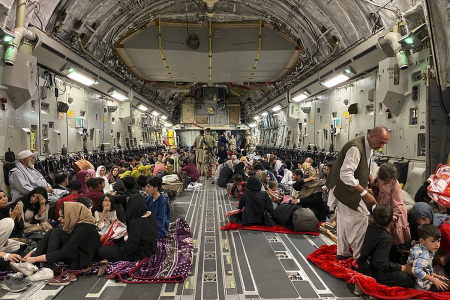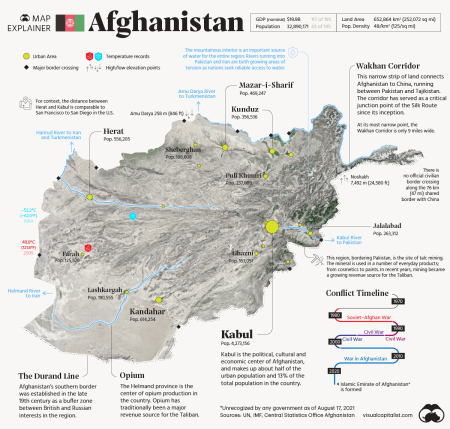Was Afghanistan a just war?

There is a well-developed body of Christian teaching known as "Just War Theory." What I saw, however, in the conservative conversation about Afghanistan and Iraq was a stripped down version of JWT. One element is that the cause must be just and many of our friends camped out entirely on that element. The Taliban harbored an evil man who murdered thousands of Americans. Of course, the cause was just! But going back to St. Augustine, through St. Thomas and then Vittoria and Grotius, JWT has also included elements such as proportionality, cost, reasonable likelihood of success. I'm not sure our crowd gave those much weight.
Bottom line: were these wars consistent with Just War Theory? Let's distinguish between the Afghan and Iraq wars. The former was far more justifiable. But in each case we have to ask what the mission was. If the mission was to punish the Taliban for aiding an act of war against the U.S. then that is firmly within the JWT tradition. If the mission was nation building, specifically building a modern liberal democracy, then I'd say the likelihood of success criterion was not met.
There were serious physical barriers to that mission. For example, the nature of the terrain itself, divided by some of the highest mountain ranges of the world, forming a unified nation out of what has always been a group of tribes with a circle arbitrarily drawn around them on a map.

(Source: Visual Capitalist)
And demographic factors including a very young population, which is the most volatile demographic mix imaginable, a nation with lots of teenagers, fewer women than men, and very few gray heads to steer the young ones:

(Source: Visual Capitalist)
Throughout history, states have sent armies out to hunt down petty little warlords who attacked Americans. ‘Blackjack’ Pershing for instance ran missions like that. Such wars can be just, proportionate, and achievable. But in my private conversations with Bush administration officials including Dick Cheney, Donald Rumsfeld, Paul Wolfowitz and Condi Rice directly and also through backchannels, it became clear to me that they felt that they had to justify the wars along grand humanitarian lines, with objectives of transforming great swaths of the world into the kind of liberal democracies that have historically only emerged from Christian civilizations (or colonies of those civilizations).
I don't think that mission was consistent with a Christian view of fallen, and unredeemed, human nature. It's hard even for Christians and Jews, people of the book, to always get human rights right. How could we expect a civilization with no real roots in human rights theory to be transformed at the point of our guns?
George W. Bush used to justify this mission by saying that all humans yearn for liberty. That might be true (but it also might not, humans often yearn for security and the bondage which they think will bring it), but even if it is true that we all yearn for liberty, that is no reason to believe that’s enough. The trick isn't to find a person who wants to be free himself; the trick is to find people who are willing to let other people be free too. You don’t just need people who want to be free, but rather who will also follow the Golden Rule and grant to others the freedom they want for themselves.
That's something which armies are not very good at accomplishing. That's something that comes more from missionaries than from missiles.
Jerry Bowyer is financial economist, president of Bowyer Research, and author of “The Maker Versus the Takers: What Jesus Really Said About Social Justice and Economics.”





















